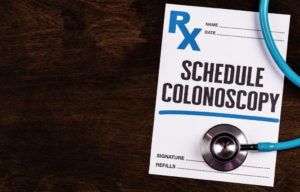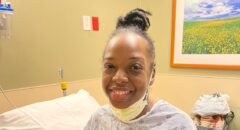 African Americans have the highest mortality rates from colorectal cancer of any ethnic group in the United States – 40 percent higher than those of whites. Yet screening for colorectal cancer in the African American community has increased at a much slower rate compared to other groups. Why is this the case?
African Americans have the highest mortality rates from colorectal cancer of any ethnic group in the United States – 40 percent higher than those of whites. Yet screening for colorectal cancer in the African American community has increased at a much slower rate compared to other groups. Why is this the case?
“African-Americans are more likely to get colon cancer, they’re more likely to have an advanced stage of disease when they’re diagnosed with colon cancer, they’re more likely to die from colon cancer and they have shorter survival after diagnosis with colon cancer,” said Dr. Darrell Gray II, Medical Director, Endoscopy and Gastroenterology Services at Ohio State University and Colorectal Cancer Alliance spokesperson.
He said there are many factors that come into play regarding this issue.
“In my experience speaking with patients and interacting with Black people in my community, they are often afraid of colonoscopies and resent the notion of having a foreign device go up their behind,” Dr. Gray said. “ There’s also the issue of having no insurance coverage to pay for the screenings or treatments needed if they’re diagnosed.”
Phalon Ervin can attest to this. The 37-year-old single mother self-diagnosed her painful bowel and stomach symptoms as colorectal cancer when she was just 28 but didn’t seek treatment because she had no insurance coverage.
“I was experiencing all of the big symptoms of the cancer: bloating, fatigue, rectal bleeding, involuntary weight loss and stool changes,” she said. “After a quick Google search, I knew I had colorectal cancer.”
As a new college graduate, a mother and temp worker, she said she was more concerned about spending as much time with her child as she could instead of seeking time-consuming treatments and racking up medical debt.
“Looking back, I actually can’t believe that this was my pattern of thinking, but I had no money and no viable job options, nevertheless insurance; I knew that I was already dying anyway, so I wanted to spend the little bit of time I had left of my life with my child.”
Fortunately, she didn’t have to choose between her life and time with her son. Not too long after the self-diagnosis, she was able to secure a full-time job with health benefits and received an official diagnosis and treatment.
“I underwent chemotherapy and now, almost ten years later I’m still cancer-free.”
With us coming on the heels National Colorectal Cancer Awareness Month in March, both Dr. Gray and Phalon are urging Black people to take their health into their own hands with help of the ‘Don’t ASSume’ campaign.
“Don’t die from embarrassment,” said Dr. Gray. “Through this campaign, I want to encourage people to take their health in their own hands by proactively getting screenings, inquiring about your family health history and putting your pride to the side--get the colonoscopy.”
Colorectal Cancer Alliance and their recently launched a campaign “Don’t ASSume” uses humor and provocative imagery to challenge assumptions about colorectal cancer. The goal is to increase awareness, encourage screening, and help end colorectal cancer in our lifetime.
For more information, please visit https://www.ccalliance.org/about/awareness-month

Jasmine Browley holds an MA in journalism from Columbia College Chicago, and has contributed to Ebony, Jet and MADE Magazine among others. So, clearly, she knows some stuff. Follow her digital journey @JasmineBrowley.








